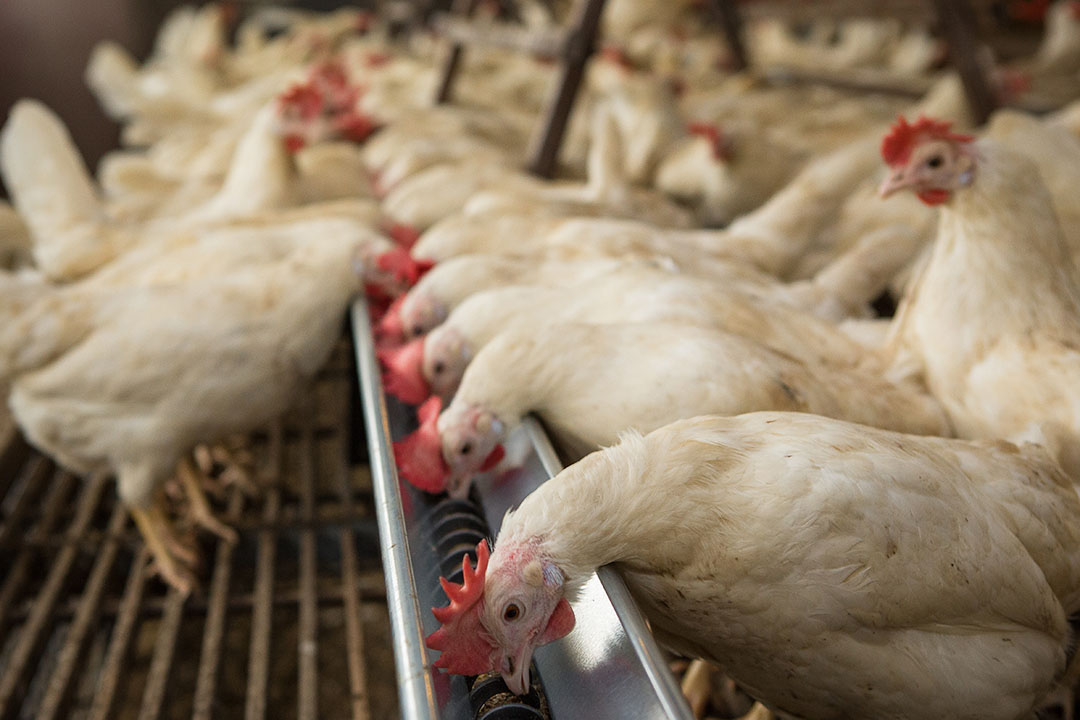The effect of herbal extracts on combating Newcastle disease

Newcastle disease (ND) is an important infectious disease in poultry. Herbal medicines are being used as immunomodulators and are a potential alternative for conventional therapies.
Echinacea purpurea is one of the most promising phytogenic additives due to its immuno-stimulatory and potentiatory properties. Echinacea stimulates macrophages, cytokine production, natural killer (NK) cells, neutrophil and Blymphocyte activity. Glycrrhiza glabra (licorice) and its extracts have anti-inflammatory, immunomodulatory and antiviral functions, so they can augment the immunity of poultry by modulating both humoral and cell-mediated immune responses, prevent viral diseases, and provide supplementary treatment for viral diseases. Propolis, is a resinous material collected by bees from the buds and exudates of plants, which is transformed in the presence of bee enzymes. Propolis contains a variety of chemical compounds such as polyphenols, flavonoids, phenolic acids, cafeic acid and their related esters, which possess anti-bacterial, antifungal, antiviral, antioxidant, hepato-protective and immuno-stimulating properties. The knowledge of propolis mechanisms of action on the immune system has advanced in recent years. Many studies have demonstrated that propolis increase macrophage activity, enhances the lytic activity of natural killer cells and stimulates higher antibody production. In this study we evaluated the effects of a natural herbal medicine on the immune response in chickens.
Poultry Health Tool
For the latest insights on the 40+ most common poultry diseases, focusing on causes, clinical signs and proven treatment and control measures.
The study
A total of 60 one-day-old commercial chicks were randomly divided into 6 groups. Birds in groups A and B were treated with a natural herbal medicine including Echinacea, Licorice and Propolis extracts (250 ml/1000 L DW) from 5 to 45 days of age. Groups A to D were immunised against Newcastle Disease (ND) via live bivalent B1-H120 (spray) on day 1, inactived bivalent ND+AI (intramuscular) and clone-selected Lasota strain (eye drop) on day 8, Lasota (drinking water) on day 18 and IBD (in drinking water) on days 16 and 23. Groups E and F were assigned as a control group and did not receive any treatment or vaccine. All groups were challenged by APMV-1/Chicken/Amol/01/2019 as a virulent ND virus (vNDV) with ICPI=1.9 at 35 days of age. Groups A, C and E were challenged by intramuscular and groups B, D and F by contact routes. Blood samples were collected at 4, 21, 28, 35 and 42 days of age and the antibody response to NDV was determined using a hemagglutination inhibition (HI) test. To evaluate the protection level and virulent virus shedding rate, cloacal and tracheal swabs were collected from all groups at 3, 7 and 10 days after challenge. Virus detection was performed via a RT-PCR technique using Kant (1997) primers, after RNA extraction from samples.
Results
At 4 days of age (before starting the treatment), the mean antibody titers in all groups were equal to 5.14 as maternal antibody titer. Also, the antibody titer was not significantly different in the control groups up to 35 days of age (before the challenge with the virus). At 21, 28 and 35 days of age, the antibody titers in the vaccinated groups were higher than those in the control groups, and the groups treated with Immuno Propophyt showed the highest antibody titers (p<0.05); so that the antibody titers in group a and b were about 1 log2 higher than group c and d on day 35. the results of shedding analysis following virus challenge in the different groups are shown in>Table 1. In the control group where the challenge was carried out through injection (group E), clinical symptoms appeared from day 2 after challenge and all chicks died on day 3; their cloacal and tracheal samples showed virus shedding. In the contact-challenged control group (group F), symptoms appeared from day 5 after challenge and all birds died by day 10; the results showed that 67% of cloacal and 100% of tracheal samples were positive for virus shedding, on day 7. In this group, only two birds were alive on day 10 after challenge, which both of them showed virus shedding in their samples. Following the challenge through injection on treatment groups, 30% of tracheal swabs in group C showed virus shedding on day 7 after challenge, while no positive sample were observed in others. All birds in the vaccinated groups A to D were protected completely and no morbidity or mortality occurred.
Figure 1 – Antibody titers means against Newcastle.
IM: intramuscular challenged by virulent ND virus, C: Contact challenged by virulent ND virus.

Improved immunity
The results indicate that the humoral immunity of chickens was improved by increasing antibody titers against Newcastle disease virus through the application of the natural herbal medicine (Figure 1). Also, when chickens were challenged with virulent NDV, this natural herbal extract prevented the replication and shedding of the virus. As a result, we conclude that using this natural herbal medicine could improve vaccine immunogenicity and reduce shedding from vaccinated birds exposed to vNDV.







